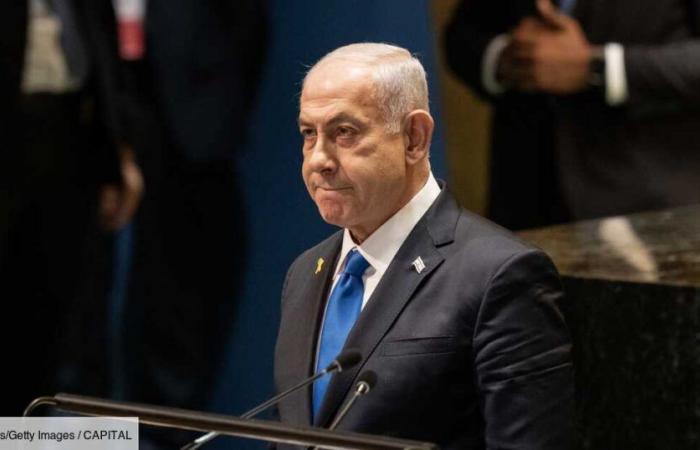© Pacific Press/Getty Images
– September 2024. Israeli Prime Minister Benjamin Netanyahu addresses the 79th session of the General Assembly at UN Headquarters.
This Thursday, the International Criminal Court (ICC) issued arrest warrants against Israeli Prime Minister Benjamin Netanyahu, former Israeli Defense Minister Yoav Gallant and the head of the armed wing of Hamas Mohammed Deif, whose However, the Israeli army announced the death in August, which the Shiite organization refutes. These warrants were issued “for crimes against humanity and war crimes“, declared the Court in two separate press releases.
«It’s a dark day for [la CPI]which has lost all legitimacy to exist and act», Israeli Foreign Minister Gideon Saar reacted on X. The Hague courtbehaved like a political toy in the service of the most extreme elements working to undermine security and stability in the Middle East“, he added. Hamas, for its part, salutes “an important step towards justice”, without commenting on his own fate.
What does this procedure mean, and what is its scope?
Since 2002, the ICC has played a central role in the fight against impunity for the most serious crimes affecting the international community. Its founding treaty, the Rome Statute, provides for the ability to issue an arrest warrant for a person when there are reasonable grounds to believe that the person has committed a war crime. , a crime against humanity, genocide or a crime of aggression. These crimes, precisely defined in international law, must have been committed after the entry into force of the Statute in 2002, thus limiting the temporal scope of the ICC’s jurisdiction.
Stock market: the CAC 40 monitors “the risk of a total Israel-Iran war”
This arrest warrant aims to guarantee the appearance of the accused before the Court. In no way being a unilateral act, the issuance of the warrant then results from the validation, by a preliminary chamber of judges, of the evidence and arguments presented by the ICC Prosecutor.
A complex execution, dependent on the States
One of the great challenges of the ICC is the absence of its own police force. The execution of its mandates relies on the cooperation of States parties, which have the obligation to hand over suspects present on their territory. In reality, this cooperation is unequal. Some States, for political or diplomatic reasons, choose not to comply. This was the case for former Sudanese President El-Bashir, who was able to travel to countries party to the Rome Statute without being disturbed. However, even when the threat is circumvented, it still acts like a sword of Damocles on the head of the person concerned, reducing their mobility and affecting their image on the international scene.
Until now, most of the mandates concerned leaders of authoritarian regimes or those responsible for civil conflicts, often in countries not aligned with major Western democracies. In the case of Benjamin Netanyahu, such a mandate constitutes a symbolic precedent, since it targets a leader supported by several Western states, potentially putting international relations under tension. Even if the threat of arrest remains constant, many of Israel’s strategic allies would likely be reluctant to arrest him.






